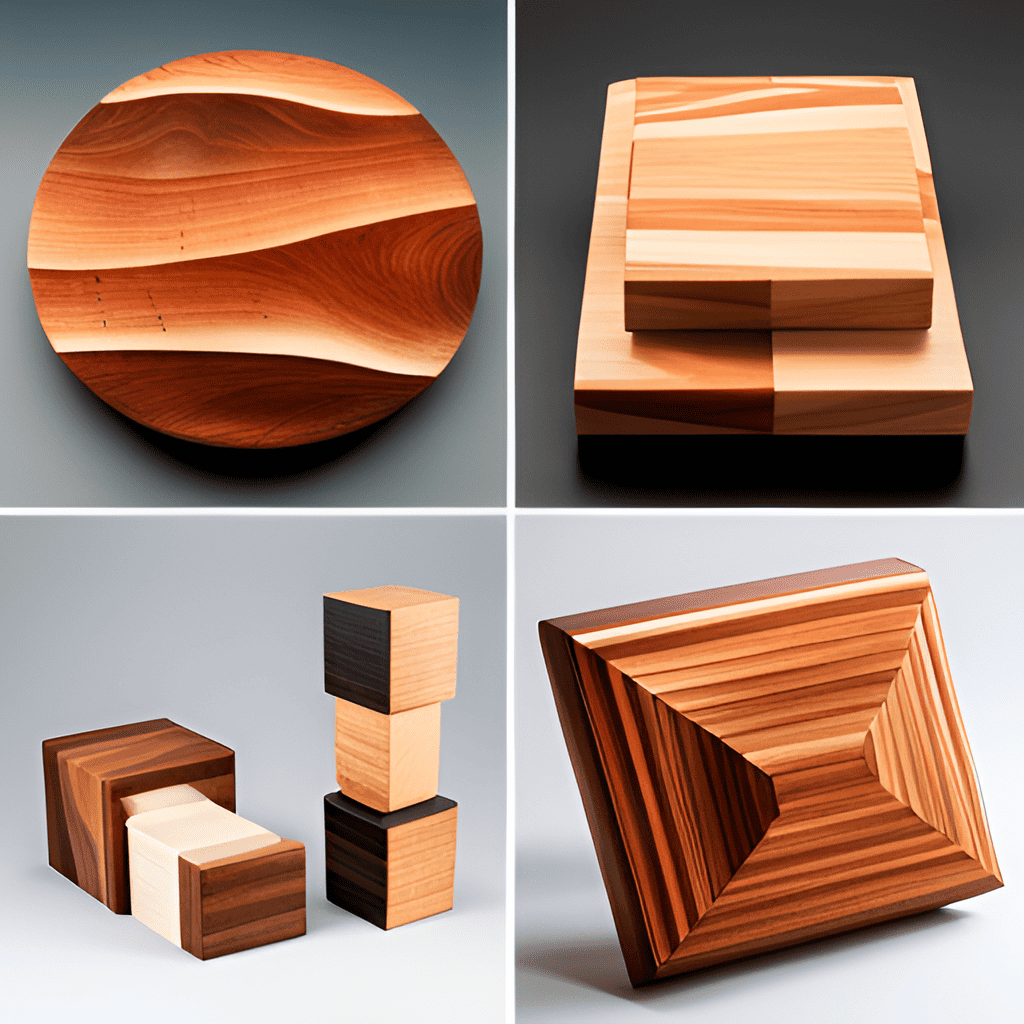Tatajuba wood, derived from the species Bagassa guianensis, is a tropical hardwood known for its strength, durability, and distinctive golden to reddish-brown color. It has a variety of applications in woodworking and construction due to its favorable properties.
Ways To Use Tatajuba Wood Are Varied
Tatajuba wood is commonly used for:
- Outdoor Decking: Tatajuba’s natural resistance to decay and insects, along with its durability, makes it a popular choice for outdoor decking and boardwalks.
- Exterior Structures: The wood’s robustness and weather resistance make it suitable for pergolas, fences, and other outdoor structures.
- Boatbuilding: Tatajuba’s inherent resistance to water and decay makes it a suitable option for boat decking, railings, and marine applications.
- Flooring: Its hardness and durability make Tatajuba wood a suitable material for high-traffic areas, such as flooring in commercial spaces or residential homes.
- Heavy Construction: Tatajuba’s strength and load-bearing capabilities make it an option for heavy construction projects, including beams, posts, and support structures.
- Furniture: Tatajuba wood’s attractive appearance and resilience make it suitable for crafting outdoor furniture, as well as interior pieces like tables and chairs.
- Railroad Ties: Tatajuba’s natural resistance to wear, rot, and insects has led to its use in railroad ties for track construction.
- Utility Poles: Its strength and resistance to decay make Tatajuba wood suitable for utility poles and crossarms.
- Industrial Applications: The wood’s durability and resistance to abrasion make it useful in industrial settings, such as in flooring for factories and warehouses.
- Cabinetry and Millwork: Tatajuba’s appealing color and grain patterns can lend themselves to cabinetry, paneling, and architectural millwork.
Due to its exceptional durability and versatility, Tatajuba wood is sought after for a range of applications where strength, longevity, and resistance to environmental factors are essential considerations.
15 Important Characteristics About Tatajuba Wood
Here’s a table outlining 15 interesting and important characteristics of Tatajuba trees and wood:
| Characteristic | Description |
|---|---|
| Scientific Name | Bagassa guianensis |
| Common Names | Tatajuba, Almendrillo, Pacific Jarrah |
| Tree Height | Can reach up to 100 feet (30 meters) |
| Trunk Diameter | Diameter of 2 to 4 feet (0.6 to 1.2 meters) |
| Wood Color | Golden to reddish-brown with darker streaks and prominent grain patterns |
| Density | Moderately heavy wood with a density of about 52 lbs/ft³ (830 kg/m³) |
| Durability | Highly durable, resistant to decay, termites, and marine borers |
| Strength | Strong and resilient, suitable for heavy construction and load-bearing applications |
| Workability | Generally easy to work with hand and machine tools, though interlocking grain can pose challenges |
| Grain Pattern | Distinctive interlocked grain with a fine to medium texture |
| Natural Oils | Contains natural oils that contribute to its resistance to water and decay |
| Resistance to Weather | Highly resistant to weathering, making it suitable for outdoor applications |
| Sustainability | Considered a sustainable hardwood choice when sourced responsibly |
| Origin | Native to South America, found in countries like Brazil and Suriname |
| Applications | Used for outdoor decking, boatbuilding, furniture, flooring, and heavy construction |
Tatajuba wood’s unique combination of aesthetics, durability, and strength makes it a versatile material for various projects, especially those requiring resistance to harsh environmental conditions.
Substitutes For Tatajuba Wood
When considering substitutes for Tatajuba wood, it’s important to select alternatives that offer similar characteristics and properties. Some potential substitutes for Tatajuba wood include:
- Ipe Wood (Tabebuia spp.): Known for its exceptional durability and resistance to decay, Ipe wood is often used for outdoor applications like decking and furniture. It shares Tatajuba’s ability to withstand harsh weather conditions and heavy use.
- Cumaru Wood (Dipteryx spp.): Cumaru, also known as Brazilian Teak, is prized for its strength and resistance to insects and decay. It’s frequently used for decking, outdoor structures, and marine applications.
- Massaranduba Wood (Manilkara spp.): Massaranduba, or Brazilian Redwood, offers similar durability and a rich reddish-brown hue. It’s utilized for outdoor projects and applications requiring robustness.
- Garapa Wood (Apuleia spp.): Garapa wood‘s light color and durability make it a popular choice for outdoor decking and furniture, comparable to Tatajuba’s outdoor suitability.
- Bangkirai Wood (Shorea spp.): Also known as Yellow Balau, Bangkirai shares Tatajuba’s resistance to decay and is often used for decking, bridges, and outdoor structures.
- Greenheart Wood (Chlorocardium rodiei): Greenheart‘s strength and natural resistance to water and insects make it suitable for marine and heavy construction projects.
- Black Locust Wood (Robinia pseudoacacia): With similar durability and resistance, Black Locust is used for outdoor applications like decking, siding, and posts.
- Blackbutt Wood (Eucalyptus pilularis): Blackbutt offers good durability and is commonly used for decking, flooring, and construction.
It’s important to note that while these woods share some qualities with Tatajuba, each has its unique characteristics. When choosing a substitute, consider the specific requirements of your project and consult with wood experts to ensure the best match for your needs.
Final Thoughts
Tatajuba wood and trees offer a valuable resource for various applications due to their impressive durability, strength, and resistance to decay. With a striking golden to reddish-brown color and notable grain patterns, Tatajuba wood brings both aesthetic appeal and functional benefits to projects. Its natural resistance to water, insects, and weather makes it particularly suitable for outdoor and marine applications, making it a preferred choice for decking, boatbuilding, and other exterior structures.
As a sustainable option, Tatajuba wood showcases the potential of responsibly managed tropical hardwoods to contribute to diverse construction, woodworking, and design needs while promoting environmental consciousness.

